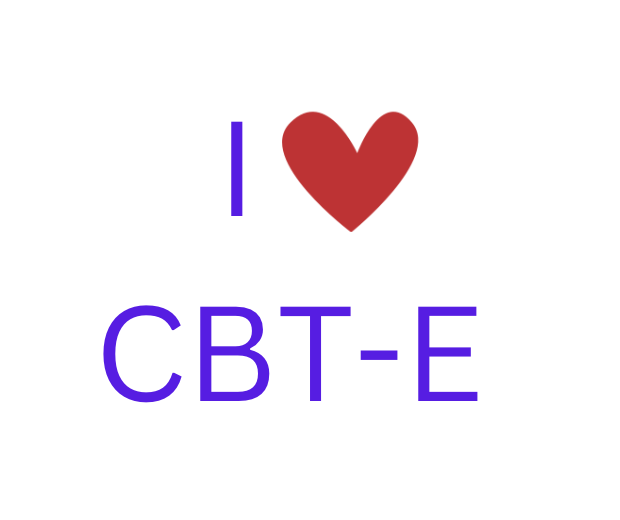
EATING DISORDER RECOVERY
BLOG
FIND WHAT YOU NEED

When Exercise Becomes a Compulsion: Recognizing the Signs of compulsive Exercise
Exercise is often celebrated as an essential part of a healthy lifestyle, but for some, it can go beyond a beneficial habit and become a compulsion. Compulsive exercise, or exercise addiction, is when the need to work out becomes overwhelming, even at the expense of physical health and emotional well-being. While it may begin as a desire to stay fit or improve mood, for many, it evolves into an unrelenting drive that can take over. Recognizing the signs of compulsive exercise and understanding when it moves from healthy to harmful is crucial for both individuals and loved ones.

Understanding Childhood Trauma and Its Connection to Eating Disorders
Childhood trauma often leaves emotional scars that can impact mental health and behaviors well into adulthood. For some, this pain manifests in disordered eating habits. Healing is possible, and it begins with understanding the connection between your past experiences and present struggles. Therapy can provide the tools to process trauma and build healthier coping mechanisms. If you're ready to take the first step toward healing, you don’t have to do it alone.

How to Find an Eating Disorder Treatment Specialist: A Comprehensive Guide to Finding the Right Professional for You
Finding the Right Eating Disorder Treatment Specialist: A Guide to Recovery
If you or someone you know is struggling with an eating disorder, such as anorexia nervosa, bulimia nervosa, or binge eating disorder, finding the right treatment is crucial for recovery. Eating disorders are complex mental health conditions that require specialized care from experienced professionals. Evidence-based treatments like Cognitive Behavioral Therapy (CBT-E), Dialectical Behavior Therapy (DBT), Family-Based Therapy (FBT), and Interpersonal Therapy (IPT) are proven to help in recovery.
Why it’s Important to Choose the Right Specialist
Eating disorders affect both physical and mental health. An experienced specialist can address underlying emotional, psychological, and behavioral patterns to support long-term recovery.
Step 1: Understand Effective Treatments
Explore therapies like CBT-E, DBT, and FBT, all of which are evidence-based and effective for treating eating disorders.
Step 2: Find Qualified Specialists
Use specialized directories such as the National Eating Disorders Association (NEDA) and Psychology Today to find experienced eating disorder treatment providers. Your healthcare provider can also offer referrals.
Step 3: Evaluate the Specialist’s Approach
Look for individualized, holistic treatment plans that address both mental and physical health. Ensure that the specialist’s approach is structured and focuses on progress.
Step 4: Assess the Fit
Comfort and trust are essential in therapy. Choose a specialist who demonstrates empathy, non-judgment, and clear communication.
Step 5: Monitor Progress
Recovery is a journey. Regular assessments and adjustments to the treatment plan will ensure continued progress.
Choosing the right eating disorder treatment specialist is an empowering step toward healing. Recovery is possible, and the right professional can help you or your loved one develop a healthier relationship with food and body image.

Adolescent-Focused Psychotherapy (AFP) for Anorexia Nervosa
Adolescent-Focused Psychotherapy (AFP) is an individual therapy approach designed specifically for adolescents with anorexia nervosa.

Eating Disorder Treatments: Calling for a Reboot
Let’s explore some of the ways that current evidence-based eating disorder treatments are narrow in scope for diverse patient populations.

Enhanced Cognitive Behavioral Therapy (CBT-E) for Adolescents
Current guidelines inform that CBT-E is the most appropriate alternative to FBT for adolescents with anorexia nervosa or bulimia nervosa.

Eating Disorders Cast a Wide Net
Let's consider some statistics that show that eating disorders cast a wide net, affecting 9 percent of the population worldwide.

Finding a CBT-E Therapist
If learning more about CBT-E leaves you interested in exploring the treatment, here are a few tips for finding a CBT-E therapist.

Learn More About CBT-E
A form of CBT called Enhanced Cognitive Behavioral Therapy (CBT-E) is an adaptation of CBT designed to treat eating disorders. Learn more!

Understanding the Neuroscience of Anorexia and Anxiety
Anorexia is not just a choice—it’s influenced by biological factors. Discover how brain chemistry and serotonin levels impact eating behaviors and how understanding the neuroscience of anorexia can help improve treatment and recovery.
10 Surprising Facts About Eating Disorders
As we celebrate National Eating Disorders Awareness Week, it’s the perfect time to share 10 surprising facts about eating disorders.
The Importance of Early Change in Eating Disorder Care
A recent meta-analysis of the literature highlights how the early change principle applies to patients with common eating disorders.
2019 Outcomes: A Year In Review
As the year came to a close, we completed a review of 2019 outcomes and are proud to report on our exceptional results and positive trends.
Eating Disorder Research 2019 Roundup
2019 was another year filled with interesting research on eating disorders. Here are a few of the studies Columbus Park found to be particularly interesting and impactful to our practice.
Eating Disorders, Suicidal Thoughts, and Self-Harm
With International Survivors of Suicide Loss Day on the horizon, it’s important to recognize that suicide attempts, suicidal thoughts, and self-harm can be significant challenges for people dealing with eating disorders.
Press Release: Columbus Park Becomes a Blue Cross Blue Shield In-Network Provider
In an effort to increase access to evidence-based outpatient eating disorder treatment, Columbus Park will now accept Blue Cross Blue Shield (BCBS) insurance as an in-network provider.
Challenges of Recovery in Ballet Culture
It’s no secret that ballet culture celebrates a long, lean figure. The pressure on ballet dancers to maintain this aesthetic is constant and for many can lead to battling food/body struggles throughout ones’ career.
